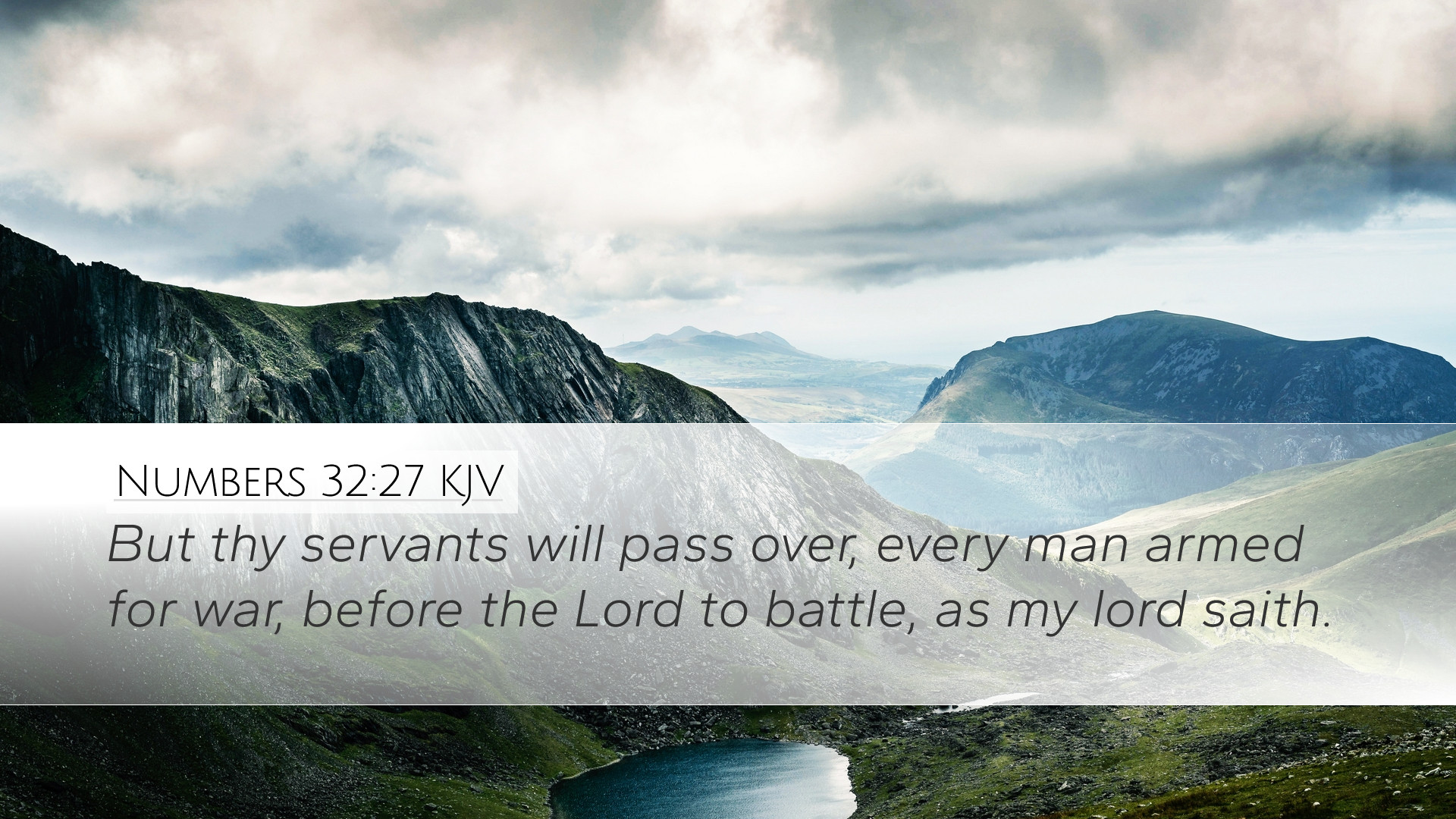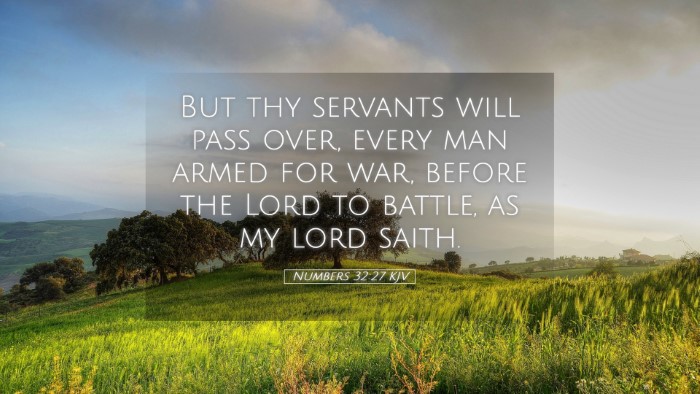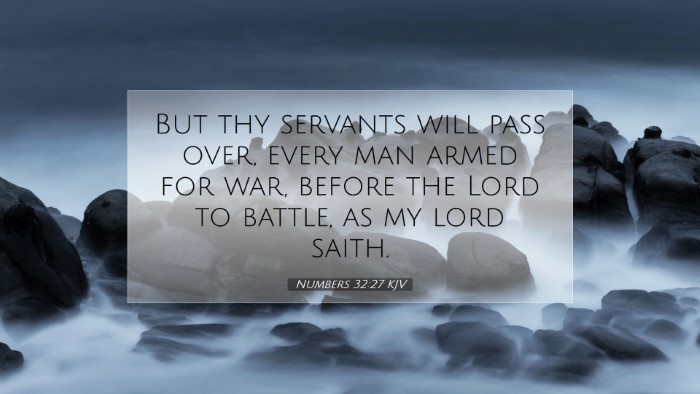Commentary on Numbers 32:27
Text of the Verse: "But thy servants will pass over, every man armed for war, before the LORD to battle, as my lord saith."
Introduction
The narrative of Numbers 32 is crucial in understanding the complex dynamics of Israel's journey to the Promised Land. This chapter addresses the request and actions of the tribes of Reuben, Gad, and half of Manasseh as they negotiate for land to dwell in on the east side of the Jordan River. Numbers 32:27 represents a pivotal moment where the tribes commit to supporting their brethren in the conquest of Canaan, despite settling in a different territory.
Contextual Analysis
To fully appreciate the implications of Numbers 32:27, one must consider the historical and theological context of Israel's journey. After escaping Egypt and wandering in the wilderness, the Israelites were on the brink of claiming the land promised to Abraham, Isaac, and Jacob. The request from the eastern tribes to settle outside Canaan presents a tension between place and purpose, commitment to community, and individual desires.
The Request of the Tribes
The tribes of Reuben and Gad, along with half of Manasseh, were attracted to the fruitful land of Gilead. They believed it suitable for their livestock. Their negotiation with Moses reveals both a practical concern for their possessions and a potential hesitation to engage in the hardships of warfare.
Faith and Leadership
Moses' initial response reflects his concern for the unity and motivation of the people. He challenges them on their duty to their fellow Israelites, a theme of collective identity that runs throughout the Pentateuch. He emphasizes that their decision not only affects their families but also the morale and success of the whole nation.
Commitment to Action
Numbers 32:27 captures the pledge made by the representatives of the tribes to engage in battle on behalf of their brothers who would take on the challenge of conquering Canaan. This undertaking illustrates a principle of communal responsibility, where the interests of the whole take precedence over personal or familial desires.
Theological Implications
This verse serves as a foundation for understanding interpersonal relationships within the community of faith. It highlights several critical themes:
- Commitment to Community: The tribes affirm their commitment to their brethren, showcasing the importance of unity in the face of conflict.
- Warfare and Responsibility: The act of engaging in battle is not merely a physical act but represents a spiritual responsibility to uphold justice and retrieve what has been promised.
- Faithfulness to God: Their willingness to fight before the Lord reflects deep obedience to divine command, underscoring the importance of acting in faith.
Insights from Public Domain Commentaries
Matthew Henry
Matthew Henry's commentary emphasizes the theme of readiness and zeal in the service of God. He states that the Levites, under Moses, were exemplifying the attitude of being armed for war, indicative of preparedness for spiritual battles as well. Henry also notes the importance of fulfilling vows made to the Lord, highlighting that the eastern tribes did not forsake their obligations but rather embraced them with a sense of duty.
Albert Barnes
Albert Barnes concentrates on the collective effort required for the conquest of Canaan. He points out how Numbers 32:27 reflects the honor of their commitment. Barnes elucidates that while the tribes desired settled life, they understood the need to support their brothers, illuminating an essential trait of faithfulness. He draws parallels to Christian service, where believers are called to support the mission of the church regardless of their personal situations.
Adam Clarke
Adam Clarke's notes provide insights on the nature of the promise made by the tribes. He explains that their willingness to serve was born out of the recognition of God’s justice and the rightful claim to the land, reinforcing the theological premise that ownership in the Promised Land came with both blessing and responsibility. Clarke highlights the potential pitfalls of desiring ease while neglecting the community’s needs, offering a cautionary tale relevant to contemporary faith communities.
Conclusion
Numbers 32:27 serves as a powerful reminder of the complexities involved in balancing personal desires and communal responsibilities. The pledge made by the eastern tribes to fight demonstrates a model of faithfulness that should inspire contemporary believers. As pastors, theologians, students, and scholars reflect on this verse, they are encouraged to examine the implications of commitment and service within their own contexts, recognizing that following God often involves sacrifices for the sake of the community.


